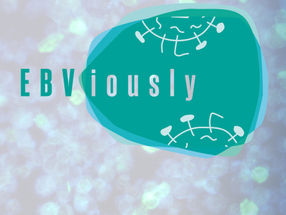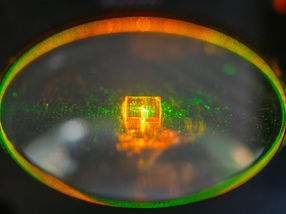Women Throughout The U.S. Are Trying VANIQA™ To Help Manage Unwanted Facial Hair
Prescriptions for VANIQA™ (eflornithine hydrochloride) Cream, 13.9%, are being filled all over the U.S., and women from coast-to-coast are using this unique topical prescription cream to help manage their unwanted facial hair. VANIQA (VAN-i-ka), approved by the U.S. food and Drug Administration in July 2000, is the first and only prescription cream clinically proven to slow the growth of unwanted facial hair in women. VANIQA was studied around the lips and under the chin.
"For many years, I have been embarrassed about excess hair on my upper lip and chin. I would do anything to make sure people didn't know about it, " said Robin Ambrosino, VANIQA user. "Now VANIQA has improved my appearance and I'm much less bothered by my unwanted facial hair. I'm thrilled with the way I look!"
More than 41 million American women have unwanted facial hair. In fact, according to a recent Yankelovich & Partners Web-based survey of 481 women, unwanted facial hair is considered a "pet beauty peeve" by more than 45 percent. And of the 225 women for whom unwanted facial hair is a pet beauty peeve, 43 percent spend some time every week managing her unwanted facial hair.
Doctors are seeing a difference in their patients, too. "I have already begun to see meaningful clinical improvement in a number of my patients who are using VANIQA," commented Deborah S. Sarnoff, M.D., FAAD, FACP, associate clinical professor, Department of Dermatology, New York University Medical Center. "I am excited to finally be able to offer my patients this unique option to help manage their unwanted facial hair."
VANIQA (eflornithine hydrochloride) CREAM, 13.9%, is not a hair remover, but complements current methods of hair removal, so if patients are currently using a hair removal method, they should continue doing so. VANIQA works right where the problem begins, within the hair follicle itself, slowing the rate at which the hair grows back. Improvement may be seen in as soon as eight weeks, although individual results may vary. Plus, the longer VANIQA is used, the better it works. If no improvement has been seen after six months of appropriate use, VANIQA should be discontinued.
VANIQA is believed to work by blocking an enzyme necessary for hair growth. In controlled trials, VANIQA provided clinically meaningful and statistically significant improvement in the reduction of facial hair growth (around the lips and under the chin) for nearly 60 percent of women using VANIQA. In fact, 32 percent of women reported marked or better improvement vs. 8 percent with vehicle (a "placebo" or unmedicated cream).
Women who are interested in learning more about VANIQA should ask their doctor or a dermatologist, call 1-877-829-9715, or visit the VANIQA Web site at www.VANIQA.com.
In clinical trials, when side effects occurred they were mild and generally resolved without treatment. The most common side effects associated with VANIQA (eflornithine hydrochloride) CREAM, 13.9%, were minor skin irritations such as temporary redness, hair bumps, stinging, burning, tingling, or rash. There are no adequate and well-controlled studies in pregnant women or women with severe inflammatory acne; therefore, use cannot be recommended in these patients.
Organizations
Other news from the department science

Get the chemical industry in your inbox
By submitting this form you agree that LUMITOS AG will send you the newsletter(s) selected above by email. Your data will not be passed on to third parties. Your data will be stored and processed in accordance with our data protection regulations. LUMITOS may contact you by email for the purpose of advertising or market and opinion surveys. You can revoke your consent at any time without giving reasons to LUMITOS AG, Ernst-Augustin-Str. 2, 12489 Berlin, Germany or by e-mail at revoke@lumitos.com with effect for the future. In addition, each email contains a link to unsubscribe from the corresponding newsletter.






















































